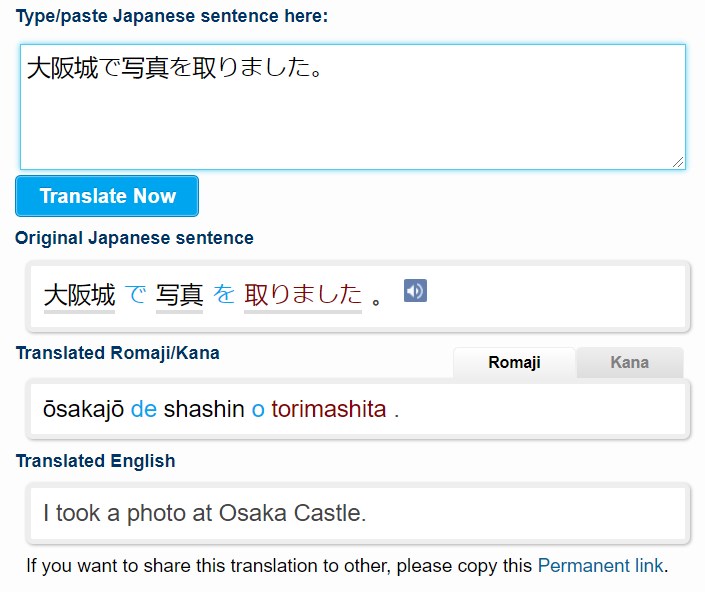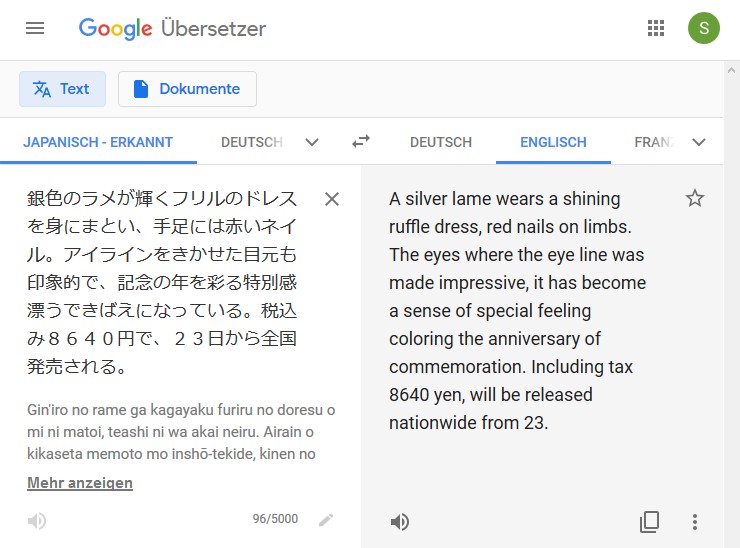
Japanese website translator how to#

Then you can call yourself a specialist in that area.Īnd it’s not just translate it and then it’s done. One great tip I heard was to translate at least 30, 500 word items on a subject. Poor translations and service means a client that you’ve worked so hard to get won’t want to work with you anymore. Jumping in without knowing anything about translation, or not practicing translation for at least a year (yep, that long), can be really damaging and frustrating. Working in the industry but not translating can teach you a lot about translation. You can get a job in-house (for a translation company or other field) as a project manager, proofreader/editor. Working in Japan, even if you’re not using Japanese for work, can expose you more to the subtleties of the language. The thing I’ve noticed about translators is it helps a lot to get a job NOT in translation when you first graduate.Įven if it’s teaching English in Japan, or working for an importing company, it can be valuable experience. Is struggling to work with just freelance. Started working as a freelance translator after college, no/little other work experience.Was a project manager for a translation company after MA in Translation.Worked in an industry (engineering, computing etc) for 5-10 years, then became a translator in that field.Translated articles for a gaming website in spare time. Took an Law conversion program and became a legal Japanese translator for Japanese entertainers. Was a JET CIR and worked with entertainers for the government.Here are just a few examples of translators I’ve met and how they got to where they are today. What I’ve learned from my own experience and talking with other translators is that there are many different ways you can get to your goal.

(Which turned out to be useless.) I thought I would get loads of work right away as a freelance translator. (Wrong.) I thought I needed schooling so took an MA in translation. (Wrong.) I started working in an office as a translator with no idea about translation, thinking I could do it because I knew Japanese. I didn’t want to do JET and become an English teacher because I was afraid I’d lose my Japanese and wouldn’t be able to use it anymore. To say my plans for becoming a translator haven’t worked as I expected would be an understatement.

What an MA in Translation Doesn’t Teach You – What to keep an eye out for in an MA program in translation. Translation for Beginners – Translation Agencies – The industry from the agency’s perspective. Lessons Learnt as a Beginner Translator – More translating tips. Translating Japanese for Beginners – The translation process in detail for beginners. Translating from Japanese to English for Beginners – Translating tips. Getting Translation Experience II – How to set yourself towards translation as a career. Getting Translation Experience I – How to bulk up your Japanese skills and start getting experience. If you are an intermediate/advanced Japanese skilled person and want to become a translator in the future, the following articles should help you. This post is for people who have the Japanese skills and are now looking at becoming a translator. It’s been a while since I wrote those and my attitudes towards translation have changed. I’ve written a number of articles in the past about how to translate for beginners and getting translation experience. “I want to use my Japanese with work and become a translator!”


 0 kommentar(er)
0 kommentar(er)
